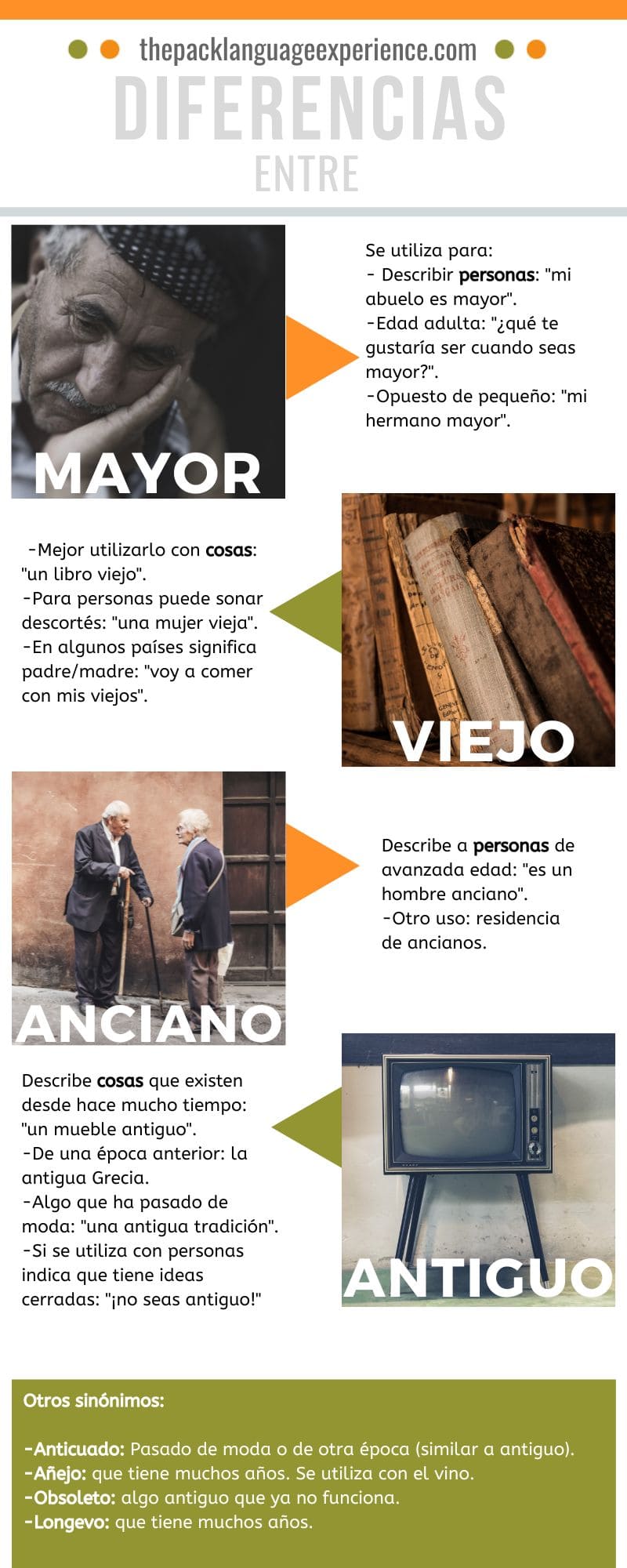
Differences between mayor, viejo, anciano and antiguo
Do you know the differences between mayor, viejo, anciano or antiguo? After more than ten years of teaching Spanish, I have become aware of some of the trickier aspects of the language for students. In this blog we try to explain, in the easiest way possible, these difficult areas. In previous posts, we have seen the different meanings of some adjectives depending on their usage with the verbs ser or estar. We have also made a list with the verbs of change in Spanish and learnt when to use the prepositions por and para.
On this occasion, we will focus on the different words used in Spanish to describe when something becomes old. These are the main differences between mayor, viejo, anciano or antiguo:

If you would like to put your Spanish skills into practise, get in touch to know more about our Spanish online lessons and language immersion programmes.
(Header photo: Tom-Analogicus -Pixabay)

